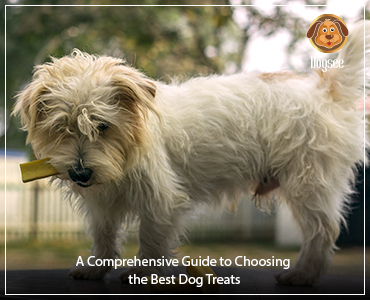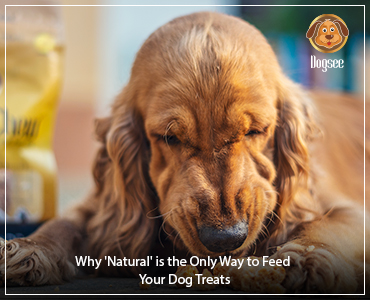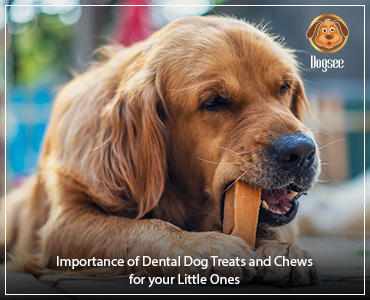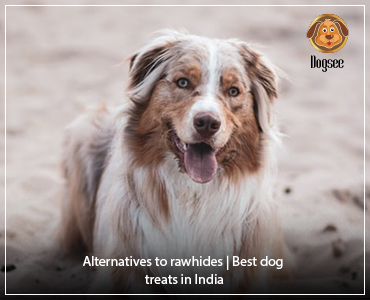When you’re bringing home a new addition to your family, there’s an undeclared commitment that comes with the territory. It’s an informal oath to protect and care for your little pooch, and to ensure that he/she is happy and healthy.
Even if you’re a current dog parent, there’s a lot that goes into ensuring the well-being of your dog that often goes undiscussed. Most of the time, dog parents are taking it day by day, and learning something new every day when it comes to their dog’s health, nutrition, and care.
Wouldn’t it be nice if there’s a brochure that tells you everything you need to know? Well, keep reading because we’re here to inform you on everything you need to know about taking care of your four-legged best friend.
Dog Health Care

For any dog parent, ensuring that your puppy or dog is healthy and happy is your top priority. The decisions you make and the behaviors you set every day affects your dog’s health and happiness. Pet health is a multifaceted topic that can be quite overwhelming for some dog parents, with all the countless articles that exist on the internet today. So we’ve put together a few “to-do’s” to make it easier on you and your pup.
Regular wellness checkups is a necessity
Just as we humans go to our doctors for a physical checkup to ensure that we are healthy, our puppies need the same care to catch and prevent any illness at the right time and ensure the safety of our fur baby.
The frequency of checkups vary depending on the age of your fur baby. Puppies from newborn to 2 years old need frequent visits to the vet to stay updated on vaccinations against distemper, parvovirus, rabies, leptospirosis and parainfluenza. Your pup would also need to take heartworm, and flea/tick medication. This is also the time to consider whether you want to spay or neuter your pet.
When your pup is 2 years old, he/she is considered as an adult dog, and the frequency of the visits decrease, as many vaccinations would not be needed. However, you would still need to go to the veterinarian to update rabies vaccination, get fecal exams, and ensure that your pup does not test positive for heartworms. Even if you feel that your pup is completely healthy, having a regular check up with your vet will ensure that you diagnose any disease that you might have missed, at an early stage, and start the appropriate treatment to cure any illness.
Once your pup is 7 years old or more, he/she will be considered a “senior.” Your veterinarian can diagnose and assess your pet’s nutrition, health problems, blood work etc to make sure that you dog is healthy.
Vet care goes beyond treating diseases, and vaccinations, they help you maintain your pet’s health and hygiene. If your puppy or dog refuses to let you brush his/her teeth, clean his/her ears, trim his/her nails, your veterinarian can do these things for you to make things easier for you and your fur baby.
Provide your pet a safe, secure place in your home
Dogs are territorial animals, and they like to have their safe space where they can run to in case they feel threatened, or anxious. This is a place where your dog can feel comfortable and trust that nothing will harm them. A safe space can provide comfort and induce positive behaviors especially in shelter dogs or even abused dogs. Make sure that your dog has his/her own bed, in a specific area of your home - this will be their safe haven.
It’s important that when you’re punishing your dog, that you don’t put them in this place, as it can actually make your dog’s mind register this space in a negative way and lead to more unwanted behaviors.
Make sure your pet gets properly trained
All that our fur babies want to do is make their humans happy. However, as humans, we follow a different lifestyle and code that is a foreign concept to our fur babies, unless we teach them.
In their natural habitat with their own pack, dogs learn and understand pack hierarchy, and their life revolves around following the pack, playing, hunting and eating. When we domesticate them, we need to teach them new rules that match our human lifestyle.
Proper training can ensure that this new set of rules is instilled in your dog from a very young age. The sooner you start training them, the better chance you have at correcting unwanted behaviors. Once they turn 1 year old, much like human babies, basic behaviors are set, and it will be harder to train and get rid of these behaviors.
At the end of the day, a well-behaved dog means a happy dog. This is because it creates a positive, encouraging environment. Proper training also ensures that your pup will be able to socialize with other pets safely without aggression, and prevents them from being in dangerous situations.
Make sure your pet goes to the bathroom regularly
The frequency of bathroom visits for your pet is similar to that of human beings. Like human babies, puppies need to be able to use the bathroom regularly as they cannot hold for long hours. A 6-week old puppy, for example, will need to use the bathroom every 3-4 hours.
As they get older, you can train your dog to be housebroken to avoid accidents around the house when he/she will be left unsupervised for a long time. However, they still need to be taken out every six hours to prevent any infection.
When your dog gets older, he/she will need to use the bathroom even more frequently like senior citizens. If you’re unable to take them outside at regular intervals, you can buy an indoor pee pad so your dog can relieve himself/herself when they need to. But make sure that this area gets thoroughly cleaned each time to ensure that your doesn’t contact any infection or parasites from contact.
Following proper and regular bathroom hygiene can train your dogs to use the bathroom at regular timings, which makes it easier for the both of you. Most importantly, it ensures that they maintain good health and stay clear of infections such as UTI.

Ensure that your pet gets regular exercise
Exercise is an important part of your pet’s mental and physical health. It provides mind stimulation, and ensures that your pet maintains ideal body weight to reduce the risk of obesity and related health risks.
As social creatures, dogs love to play. Think about if your dog was with its pack instead of in your home right now, all they would be doing is playing, eating or sleeping. As humans, we have many responsibilities that take up our time - all the while, our fur baby is resorted to waiting for our return or attention.
Walking your dog, playing fetch, tug of war, and interactive games can increase bonding between you and your fur baby while improving their mental and physical health.
Most often, when our dogs get naughty, it’s because they are bored and crave our attention. Exercise can prevent their naughty behaviors, and most importantly, ensure that our little ones are happy and healthy.
Clean your pet’s ears and teeth properly and regularly
A part of the pet health care routine that often doesn’t get talked about often is ear and dental care. Neglecting regular dental and ear cleaning can lead to infections and diseases that affect your pet’s health.
For ears, cleaning is recommended once a week with an ear cleaner and damp cloth. Your vet can guide you to ear cleaners or droppers. Start by simply wiping the damp cloth to get rid of any dirt or wax. Then release the ear clear and massage to disperse the cleaner into the ear. If you see any excess cleaner still left in the canal, wipe it away with the damn cloth. The most important thing to avoid is the use of a cotton ball, as you run into the risk of putting it too far into the canal and damaging the eardrum.
As for dental care, dogs teeth should be cleaned every day for healthy teeth and gums. Dental disease is by far the most widespread diseases among dogs, with 80% of dogs said to have some form of gum disease by the age of 2 or 3. Plaque, for example, is a sticky substance that attaches to the tooth surface. It’s also invisible to the naked eye, making it harder for dog parents to note. But, regular brushing can remove plaque and ensure teeth and gums are healthy. However, if left untreated, plaque turns into tartar or calculus which requires the administration of a vet to carefully and properly remove it from your dog's teeth. But even after a proper cleaning by your vet, plaque can start forming again in 12 hours which is why daily brushing is crucial to ensuring healthy teeth and gums.
Cleaning your dog’s ears and teeth is easier to do when they’re puppies which is why it is recommended to start cleaning their ears and teeth on your own at a very early age. As they get older, if they’ve never been exposed to having their teeth or ear cleaned at home, the sensation can be scary and cause them to be difficult during the process. If your dog won’t let you clean his/her ear or teeth at home, no problem! Just schedule regular appointments with your vet to have them cleaned.
Dog Nutrition

Pet nutrition is one of the most difficult areas of pet health, with so many options available on the market. Like a baby, your dog’s nutritional needs and requirements change as they age, and it’s important to ensure that the food reflects these requirements. It’s always great to consult your vet and discuss a proper diet plan for your pet. This way, you can rest easy knowing that your pet’s food contains all the various nutrients he/she needs.
With so many brands and fancy names printed on the back of the packaging, it can be hard to know what you are actually feeding your pet, and how much you’re supposed to feed him/her. So we’ve put broken down the important information all dog parents must know when it comes to pet nutrition.
Feed them at regular intervals
When you’re taking your puppy or dog home for the first time, you’re usually told by the previous caretaker about the pups diet. Sometimes, the dog receives good care, proper nutrition and a balanced diet while others do not meet the needs of the dog. It’s important to know the stages of development and ensure that your puppy is given the proper nutrition it needs to grow and maintain proper health. Depending on their age, your dog will require either frequent, larger portions or smaller portions of meals.
Puppies, for example, have a great appetite, and since they’re growing should be fed small amounts, and approximately 4 meals per day. After 4 months, they should be fed 3 meals a day, and at six months, can sustain two meals a day.
It’s important that you stick to the same diet, and feed at regular intervals. A change in timing can throw off your pet’s digestive system and cause indigestion. When changing food, ensure that you gradually introduce the new food to your pet by incorporating the new food with the old one, and wait around a week to transition fully to the new food. Any changes in food should be consulted with the vet since it can cause digestion problems and pose a health risk to your pet otherwise.
Make sure your pet gets access to water 24/7
Just like humans, your dog needs to drink sufficient water daily to survive. Water aids digestion, helps the body absorb nutrients, and regulates and maintains body temperature. Failure to drink enough water can lead to dehydration and serious health risks.
The amount of water that your pet needs to consume daily varies depending on body weight, activity level, and the season. In the summers, just like humans, your pet may need to drink more water to maintain normal body temperature and keep cool. Always consult with your veterinarian to find out exactly how much water your pet needs to be drinking every day.
Since water plays an important role in keeping your pup healthy, it's imperative to make sure that your pet has easy access to his/her water bowl at all times - especially if you’ll be gone for a long period of time. Also, make sure that you clean the water bowl and refill with fresh, clean water.
Give your pet healthy, nutritious food
The best way to ensure that your dog stays healthy is by feeding him/her healthy food and treats. You want to ensure that the food that you’re feeding them has the cleanest, healthiest ingredients that provide a balanced nutrition. With the growing buzzwords of “clean ingredients” “all natural pet food” along with the growing number of pet food manufacturers can make it overwhelming when it comes to deciding what to purchase for your dog.
In times like these, it’s important to educate yourself on pet food processing, read the packaging label and understand what your dog is eating. You may think, because certain brand names are household names that are advertised everywhere and are “popular” among social media, that they might be good for your pet. On the contrary, these manufacturers are processing food and treats at such high temperatures, that the nutrients are sucked out of the food, and instead leaves cancerous ingredients in the mix.
When it comes to even treats, it's important to read about the brand and learn about their practices. How do they process their food? What are the ingredients? Are any of the ingredients considered toxic and harmful by authoritative organizations? Has the food been recalled and declared dangerous by the FDA? Getting the answers to these questions can make sure that your pet gets only the safest, healthiest food that exists today.
One more important benefit to look into is whether the food is human grade. If it’s harmful to put them into your body, then it can’t be any good for your little one. And, that’s why we’re going to make your life easier by providing a few suggestions of Dogsee Chew healthy puppy treats that are human-grade and made from 100% natural ingredients.
Healthy Dog Treats for your Fur Babies

Now, you might be wondering whether treats are a good choice for dogs. Treats are the magical solution to getting your pet to listen to your every command, every single time. It’s like dessert at the end of a long day that makes you want to keep going and get your work done.
Treats can be used for a variety of activities from training to keeping your pets busy when you’re away from home. They’ll even get your dog finishing every last bite of their meals if they’re a picky eater.
The most important thing is to ensure that the treats are made the natural way, and don’t contain any toxic ingredients that might be harmful to your pet’s health. The next best thing is to choose treats that cater to your dog’s size and activity.
Hard Dental Chews
Whether you have a large, medium or small dog, it’s hard to make a treat last long. And sometimes you need a long-lasting treat that will keep your dog entertained and occupied for a while when you’re doing chores, going outside or simply when you need a minute to yourself. You’re in luck, Dogsee Chew Hard Bars are the answer to your prayer. These long-lasting dental chews are your dog’s personal entertainer and bodyguard. They keep your fur baby occupied for long periods of time, fight against plaque and tartar and freshen your dog’s breath. Better yet, they come in 3 different sizes - large, medium and small - so you can choose the right bar according to your little one’s size.
Soft Chew Dental Treats
Just because your dog’s older doesn’t mean they can’t enjoy treats! But, as a senior dog parent, you’re probably a little more cautious when it comes to the type of treats - and rightfully so! It’s important to choose a treat made from high quality ingredients that meet your doggo’s health needs and are not too hard for his teeth. Dogsee Chew Puffy Bars tick all the boxes in your checklist. These soft chew dog treats are specially made for older dogs who don’t have strong teeth and have a hard time chewing. They are high in protein, low in fat, and easy to eat and digest. They also remove plaque and tartar, and freshen breath, providing both the yumminess and health benefits to your senior pet.
Soft Dog Treats
When it comes to treats and food, small dogs and puppies have different needs than large/medium sized dogs - and buying for your small dog and puppy requires a little more caution because of their size. You want to make sure that the treat is the right size for your dog/puppy, and easily chewable.
Dogsee Chew Crunchies are nutritious, flavourful treats made specifically for your small pooch or puppy. These soft dog treats are great for teething, training, snacking, and for giving a little extra love for your little one. These soft puppy chews also help keep your fur baby’s skin healthy and coat shiny. They’re also extremely beneficial to your pup’s dental hygiene, ensuring fresh breath and keeping the plaque and tartar at bay.
Training Treats
When you’re training your dog, you need quick treats that will grab your pet's attention, and keep the flow going. Dogsee Chew Puffies are soft dog training treats that will make your training sessions more effective and fun for your dog. These bite-sized training treats are easy-to-feed, high in protein, and low in fat, thus providing energy and helping maintain your dog’s weight while making training more rewarding.
Another way to make training fun yet nutritious is through fruits and veggies. They provide wholesome nutrients that are essential to your dog’s health and well-being. But we know what you’re thinking, fruits and veggies get messy and add to your workload. And, we’ve got the ultimate solution for you. Dogsee Crunch fruit and veggie treats are made from single-ingredient fruits and vegetables that are freeze-dried and fat-separated for best nutrition. They make it easy for you to incorporate fruits and veggies into your dog’s diet without the added mess! Additionally, they come in a variety of flavours - apple, banana, beetroot and coconut - that contain antioxidants, vitamins and minerals that help boost immunity, build proteins and hormones, produce hemoglobin and red blood cells, and maintain a healthy gut.
Above all else, the single most important priority for any dog parent is making sure that their baby is healthy, safe, and happy. Nutrition makes up for a big portion of their well-being. The source and quality of their dog food, treats, toys and even medication determines the quality of life your dog will lead. It’s our responsibility, as dog parents, to honor the commitment we took when we brought them home: to shower them with love and ensure healthy well-being. So, take everything with a grain of salt, keep learning and treat well!



